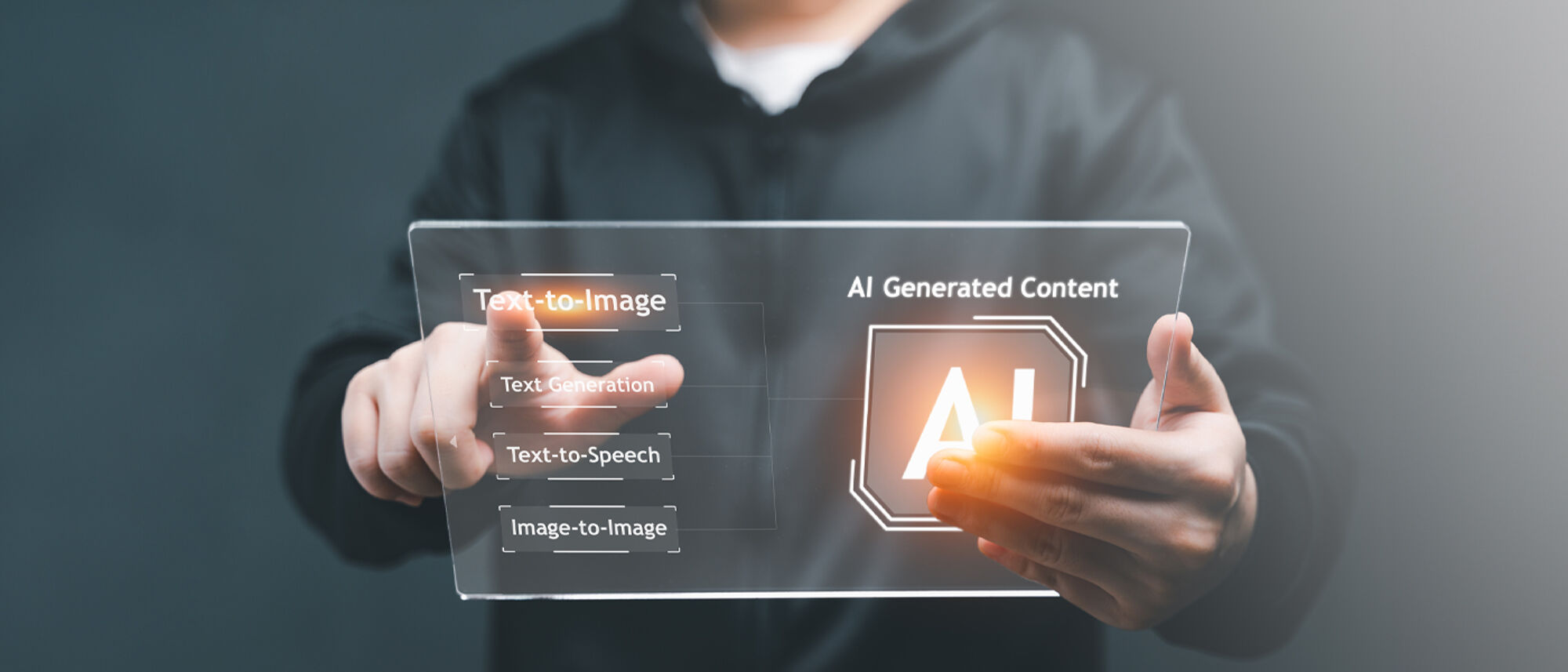
AI & you
Artificial intelligence (AI) is grabbing the headlines – both good and bad. Should we be worried about its exponential rise? UofG Careers & Employability Manager Daniel Mitchell argues that being AI-literate will be crucial for staying competitive in the job market.
By Daniel Mitchell and Aaron McKenna
Last year has been defined as the breakout year for the uptake of AI in the UK. Recent research supports this, with 39% of UK businesses adopting AI in some format and 42% of UK CEOs stating that they have implemented AI technology.
From routine tasks such as drafting emails and summarising reports to enhancing business processes including analysing data and streamlining recruitment and selection, the capabilities of AI are constantly evolving.
However, change is always daunting and much has already been said about the potential dangers of AI and how it could threaten – or even steal – your job. But, if AI is to lead the fifth industrial revolution, then focus should also be given to how AI can redefine your role and help you explore new avenues for career growth.
"Only through embracing AI’s potential and honing relevant skills will individuals be able to position themselves to lead and thrive in an increasingly AI-driven world. The time to embrace AI is now.
‘Collaborative intelligence’ is the common term used to describe this, which refers to the synergy achieved when humans and AI work together. There are many potential benefits of human-AI collaboration, partly because what comes naturally for humans can be tricky for AI, and what is straightforward for AI remains almost impossible for humans. Therefore, by working together, humans and AI have the opportunity to enhance efficiency, improve decision-making, increase innovation and problem-solving and so much more.
So, rather than thinking of it like a heavyweight title fight, ‘AI vs Human’, think of yourself as the pilot and AI as the copilot (pun intended!). Turn your attention to how and when AI can effectively support you to perform your role. The following simple examples demonstrate ways you could be – and how your peers already are – collaborating with AI in the workplace …
• Routine task automation: AI automates scheduling and emails, which can free up your time for more complex and meaningful tasks. Use an AI assistant to automatically find mutually available times to meet and send calendar invites.
• Content creation: AI assists in drafting and editing. Ask AI to suggest improvements to a sentence or paragraph that you have been struggling with, or try asking for alternative name suggestions for an article you have written or an upcoming event.
• Data analysis: AI efficiently processes large datasets. Try using AI to determine trends and insights to aid in your strategic planning and allow you to make more informed decisions.
• Note-taking and summarising: You can use AI tools to take notes for you in real time, turn rough bullet points from a meeting or training event into something more shareable or even to identify key themes from notes you have already taken.
Nearly a third of employers were using AI as part of their hiring in 2023. AI algorithms are often used to screen CVs, analyse video interviews, assess psychometric tests and even predict candidate fit for specific roles.
AI is constantly improving and learning, so start your journey with one of these suggestions and see where collaborating with AI can take you in your role. Remember, as with any significant and new development, it is important to consider the ethical implications of such software and whether your organisation has a policy around using or collaborating with AI in the workplace.
AI can do momentous things, but it can't replace the human touch.
In the months to come, AI will continue to evolve in and change the workplace, and human-AI collaboration will become the norm rather than the exception. Whether you are a recent graduate settling into working life, a career changer exploring new opportunities or a seasoned professional adapting to technological shifts, being AI-literate will be crucial for staying competitive in the job market. Only through embracing AI’s potential and honing relevant skills will individuals be able to position themselves to lead and thrive in an increasingly AI-driven world.
This article was first published October 2024.

Alumni benefits
As a graduate of UofG, you are a member of our extended Glasgow family. You can access a range of services and opportunities to help you make the most of your alumni community and to enjoy life with Glasgow beyond your studies.
• Careers, Employability & Opportunity
Access our award-winning service
• Advice from alumni
get real-life insights, top tips and honest advice from successful UofG alumni
• Discounted study
Undertake further study for a reduced fee
• Membership to University services
Join the Library or University sports facilities
• Alumni events
Attend physical and virtual UofG events all over the world
• Alumni associations
Connect with fellow alumni in your area
• Getting married
Hold your wedding on our spectacular campus

